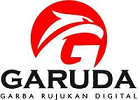Science Literacy-Oriented Project Based Learning Development for Chemistry Teachers of High Schools in Sumedang District [Pendalaman Materi dan Perancangan Pembelajaran Project Based Learning Berorientasi Literasi Sains Untuk Guru-Guru Kimia se-Kabupaten Sumedang]
Abstract
Keywords
Full Text:
PDFReferences
Anastas, P., & Warner J. (1998). Green chemistry: Theory and practice. New York: Oxford University Press.
Blumenfeld, P. C., Soloway, E., Marx, R. W., Krajcik, J. S., Guzdial, M., Palincsar, A. (1991). Motivating Project-Based Learning: Sustaining the Doing. Supporting the Learning. Educ.Psychol. 26 (3−4), 369−398.
Constable D. J. C., Jime´nez-Gonza´lez C., & Matlin S. A. (2019). Navigating complexity using systems thinking in chemistry, with implications for chemistry education. J. Chem. Educ., 96(12), 2689–2699.
Desimah, D., Rafiuddin, R., & Dali, A. (2019). Penerapan Model Pembelajaran Project Based Learning untuk Meningkatkan Literasi Sains Kimia Siswa Kelas XI pada Materi Pokok Koloid. Jurnal Pendidikan Kimia FKIP Universitas Halu Oleo, 4(3), 190200.
Gleason, N. W. (2018). Higher Education in the Era of the Fourth Industrial Revolution 2018. Singapore: Palgrave Macmillan. ISBN : 978-981-13-0193-3.
Mamlok-Naaman R., Katchevich D., Yayon M., Burmeister M., Feierabend T. & Eilks I. (2015). Learning about sustainable development in socio-scientific issues-based chemistry lessons on fuels and bioplastics, in Zuin V. and Mammino L. (ed.), Worldwide trends in green chemistry education. Cambridge: The Royal Society of Chemistry.
Marks R., & Eilks I. (2009). Promoting scientific literacy using a sociocritical and problem-oriented approach to chemistry teaching: Concept, examples, experiences. Int. J. Environ. Sci. Educ., 4(3), 231–245.
Miller, E. C., & Krajcik, J. S. (2019). Promoting deep learning through project-based learning: A design problem. Disciplinary and Interdisciplinary Science Education Research, 1(1), 1–10.
OECD. (2016). PISA 2015 Assessment and Analytical Framework: Science,. Reading, Mathematic and Financial Literacy. Paris: OECD.
OECD. (2014). PISA 2012 Results in Focus: What 15-years-olds know and what they can do with what they know. Paris: OECD.
Presley M. L., Sickel A. J., Muslu N., Merle-Johnson D., Witzig S. B., Izci K., & Sadler T. D. (2013). A framework for socioscientific issues based education. Sci. Educ. 22(1), 26–32.
Sari, D. N. A., Rusilowati, A., & Sukowati, M. (2017). Pengaruh pembelajaran berbasis proyek terhadap kemampuan literasi sains siswa. PSEJ (Pancasakti Science Education Journal), 2(2),
Sjo¨stro¨m J., Rauch F., & Eilks I. (2015). Chemistry education for sustainability, in Eilks I. and Hofstein A. (ed.), Relevant chemistry education: From theory to practice. Rotterdam: Sense Publishers, pp. 163–184.
Tsybulsky & Muchnik-Rozanov. (2021). Project-based learning in science-teacher pedagogical practicum: the role of emotional experiences in building preservice teachers’ competencies.
Disciplinary and Interdisciplinary Science Education Research, 3:9
Zuin V. & Mammino L. (2015). Worldwide trends in green chemistry education. Cambridge: The Royal Society of Chemistry.
DOI: https://doi.org/10.17509/jpi.v2i1.59332
Refbacks
- There are currently no refbacks.

This work is licensed under a Creative Commons Attribution-NonCommercial-ShareAlike 4.0 International License.


